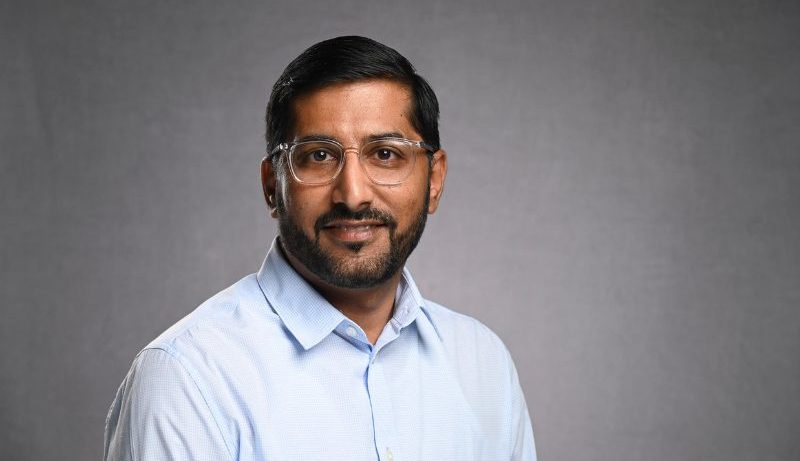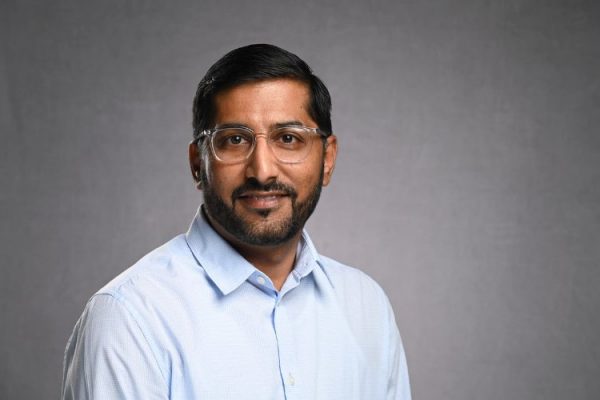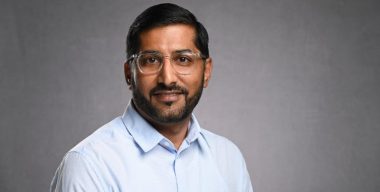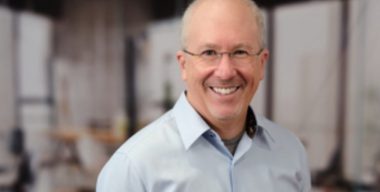“The quality of your decisions is directly linked to the quality of your questions” Pushpendra Arora, Director Data Analytics and Solutions, Human Health at Merck

-
Pushpendra Arora is a distinguished data and analytics leader with over 18 years of experience in the life sciences industry. As the Director of Data Science and Analytics at Merck, he has been instrumental in driving data-driven strategies that enhance human health outcomes. In recognition of his contributions to the field, Pushpendra was honored as one of the Top 50 ONCON Data & Analytics Professionals of the Year. A sought-after speaker, Pushpendra has shared his expertise at prominent events such as the Data + AI Summit, Snowflake Summit, between others where he discussed the development of data products to accelerate insights in the life sciences sector. Pushpendra’s leadership extends globally. His passion for leveraging data to solve complex problems continues to drive advancements in data analytics and its application in improving patient outcomes.
What is the best advice someone has ever given you?
“Ask better questions.” A great mentor once told me that the quality of your decisions is directly linked to the quality of your questions. As a leader, I’ve seen firsthand how asking the right questions leads to insights that drive impact. Whether leading a team, solving a problem, or making a business decision, I always remind myself—am I asking the right question?
“Focus on impact, not effort.” Early in my career, a mentor told me that leadership is not about how much effort you put in but about the outcomes you create. This changed my perspective—rather than measuring success by activity, I started focusing on effectiveness and strategic execution. Whether in business or personal growth, the real differentiator is how well you translate effort into meaningful results.
What advice would you give us?
“Stay adaptable, but always anchor to your core values.” The world is evolving rapidly—new technologies, shifting consumer behaviors, and unpredictable challenges. Those who thrive are not the ones who resist change but those who navigate it with clarity and purpose. However, while adapting, never compromise on integrity, ethics, or the principles that define you. These will be your guiding force in both leadership and life.
An essential quality to lead…
Put people first and be empathic with decisiveness. Leadership is always about people. Great leaders recognize that success isn’t just about strategy and execution—it’s about building, inspiring, and empowering teams. People management is a broad concept, and a strong leader commits time to it.
Exceptional leaders ensure clear direction is communicated and understood, making people development a top priority. They coach rather than criticize, provide clarity in decision-making, and create an environment where accountability is embraced. They set ambitious goals, foster a passion for winning—both for the organization and its customers—and take their teams along on the journey. Being open to feedback, treating people with respect, and cultivating a culture of trust and high performance are what truly define outstanding leadership.
What book, podcast, YouTube channel, or any other type of content do you
recommend?
I’ll mention two books I read that had a positive impact on me:
- Leading with Questions – A brilliant read on how great leaders ask better questions to unlock innovation and potential in their teams.
- The 4 Disciplines of Execution – A must-read for leaders who want to bridge strategy and execution effectively.
What historical figure would you like to have on your team?
I would love to have Steve Jobs on my team. While not typically considered a historical figure in the traditional sense, Jobs was a visionary leader who revolutionized the technology industry with his innovative approach to design and user experience. Steve Jobs’ leadership style was characterized by his passion for simplicity, elegance, and innovation. He had a unique ability to inspire his team to push beyond conventional boundaries and create products that transformed the way people interact with technology. His emphasis on design thinking and user-centricity would bring a fresh perspective to our team, encouraging us to think creatively about solving complex problems.
Have you always been clear about your professional goal?
Not always. Clarity is something that evolves over time through experience, reflection, and adaptability. I started with broad ambitions, but my path was shaped by unexpected opportunities, challenges, and even moments of doubt. Some of the biggest lessons came from detours that didn’t seem to fit the plan but ultimately helped me grow.
Looking back, I realize that uncertainty isn’t a setback—it’s a part of the journey. Each experience, success, and mistake contributed to refining my direction. What mattered most was staying curious, being open to learning, and trusting that even uncertainty can lead to meaningful opportunities.
What is the most curious app you have on your cell phone?
Sky Guide. It’s an astronomy app that helps identify stars and planets in real time. It serves as a reminder of how vast the universe is and how much there is yet to discover—similar to how we should approach leadership and personal growth, with an endless curiosity for learning.
What do people assume about you that isn’t true?
One common assumption people make about me is that I am extremely competitive and always focused on winning. While I do strive for excellence in my work, my primary motivation is not competition but rather a desire to create value and make a positive impact. I believe in collaboration and mutual support, and I find joy in seeing others succeed alongside me.
Another misconception is that, some people assume that I am rigid in my views and unwilling to change my mind. In reality, I am open to new ideas and perspectives. I believe that growth and learning are lifelong processes, and I am always eager to adapt and evolve based on new information or experiences.
What do you think will be the next revolution in your industry?
AI-driven decision-making and automation. AI is already changing the way businesses operate, but the real shift will come when it moves from being a supporting tool to an active decision-maker—analyzing data, making recommendations, and even taking autonomous actions in complex environments. The challenge will be balancing innovation with human oversight and ethical considerations.
What do you admire and do not tolerate in a person?
I admire integrity above all else—it’s the foundation of trust in any relationship or organization. Integrity means doing what’s right even when no one is watching or when it’s inconvenient. On the other hand, I cannot tolerate dishonesty and blame-shifting because it undermines trust and creates toxic environments where collaboration becomes impossible.
What is the bravest decision you have made in your life?
One of the bravest decisions I’ve made was moving from India to the United States. Leaving behind the comfort and family and friends in India to start a new one in the U.S. It involved navigating a complex immigration process, adapting to a new culture, and facing the uncertainty of building a life from scratch in a foreign country. The U.S. immigration process is rigorous and unpredictable, with long wait times for permanent residency, which added to the uncertainty.
Despite these challenges, I was driven by a desire for personal growth and new opportunities. The experience has been transformative, teaching me resilience, adaptability, and the importance of self-reliance. It has allowed me to expand my professional horizons and build a global network, which has been incredibly rewarding.
Which three top managers would you like to nominate?
Julia Brodsky, Chief Client Experience Officer at Zensights LLC.
Inder Kochar, Executive Director, Global Head of Commercial Data & Digital Innovation at Kite Pharma.
Eddie Rustandi, AVP – Head Commercial AI at Merck.
“The quality of your decisions is directly linked to the quality of your questions” Pushpendra Arora, Director Data Analytics and Solutions, Human Health at Merck

-
Pushpendra Arora is a distinguished data and analytics leader with over 18 years of experience in the life sciences industry. As the Director of Data Science and Analytics at Merck, he has been instrumental in driving data-driven strategies that enhance human health outcomes. In recognition of his contributions to the field, Pushpendra was honored as one of the Top 50 ONCON Data & Analytics Professionals of the Year. A sought-after speaker, Pushpendra has shared his expertise at prominent events such as the Data + AI Summit, Snowflake Summit, between others where he discussed the development of data products to accelerate insights in the life sciences sector. Pushpendra’s leadership extends globally. His passion for leveraging data to solve complex problems continues to drive advancements in data analytics and its application in improving patient outcomes.
What is the best advice someone has ever given you?
“Ask better questions.” A great mentor once told me that the quality of your decisions is directly linked to the quality of your questions. As a leader, I’ve seen firsthand how asking the right questions leads to insights that drive impact. Whether leading a team, solving a problem, or making a business decision, I always remind myself—am I asking the right question?
“Focus on impact, not effort.” Early in my career, a mentor told me that leadership is not about how much effort you put in but about the outcomes you create. This changed my perspective—rather than measuring success by activity, I started focusing on effectiveness and strategic execution. Whether in business or personal growth, the real differentiator is how well you translate effort into meaningful results.
What advice would you give us?
“Stay adaptable, but always anchor to your core values.” The world is evolving rapidly—new technologies, shifting consumer behaviors, and unpredictable challenges. Those who thrive are not the ones who resist change but those who navigate it with clarity and purpose. However, while adapting, never compromise on integrity, ethics, or the principles that define you. These will be your guiding force in both leadership and life.
An essential quality to lead…
Put people first and be empathic with decisiveness. Leadership is always about people. Great leaders recognize that success isn’t just about strategy and execution—it’s about building, inspiring, and empowering teams. People management is a broad concept, and a strong leader commits time to it.
Exceptional leaders ensure clear direction is communicated and understood, making people development a top priority. They coach rather than criticize, provide clarity in decision-making, and create an environment where accountability is embraced. They set ambitious goals, foster a passion for winning—both for the organization and its customers—and take their teams along on the journey. Being open to feedback, treating people with respect, and cultivating a culture of trust and high performance are what truly define outstanding leadership.
What book, podcast, YouTube channel, or any other type of content do you
recommend?
I’ll mention two books I read that had a positive impact on me:
- Leading with Questions – A brilliant read on how great leaders ask better questions to unlock innovation and potential in their teams.
- The 4 Disciplines of Execution – A must-read for leaders who want to bridge strategy and execution effectively.
What historical figure would you like to have on your team?
I would love to have Steve Jobs on my team. While not typically considered a historical figure in the traditional sense, Jobs was a visionary leader who revolutionized the technology industry with his innovative approach to design and user experience. Steve Jobs’ leadership style was characterized by his passion for simplicity, elegance, and innovation. He had a unique ability to inspire his team to push beyond conventional boundaries and create products that transformed the way people interact with technology. His emphasis on design thinking and user-centricity would bring a fresh perspective to our team, encouraging us to think creatively about solving complex problems.
Have you always been clear about your professional goal?
Not always. Clarity is something that evolves over time through experience, reflection, and adaptability. I started with broad ambitions, but my path was shaped by unexpected opportunities, challenges, and even moments of doubt. Some of the biggest lessons came from detours that didn’t seem to fit the plan but ultimately helped me grow.
Looking back, I realize that uncertainty isn’t a setback—it’s a part of the journey. Each experience, success, and mistake contributed to refining my direction. What mattered most was staying curious, being open to learning, and trusting that even uncertainty can lead to meaningful opportunities.
What is the most curious app you have on your cell phone?
Sky Guide. It’s an astronomy app that helps identify stars and planets in real time. It serves as a reminder of how vast the universe is and how much there is yet to discover—similar to how we should approach leadership and personal growth, with an endless curiosity for learning.
What do people assume about you that isn’t true?
One common assumption people make about me is that I am extremely competitive and always focused on winning. While I do strive for excellence in my work, my primary motivation is not competition but rather a desire to create value and make a positive impact. I believe in collaboration and mutual support, and I find joy in seeing others succeed alongside me.
Another misconception is that, some people assume that I am rigid in my views and unwilling to change my mind. In reality, I am open to new ideas and perspectives. I believe that growth and learning are lifelong processes, and I am always eager to adapt and evolve based on new information or experiences.
What do you think will be the next revolution in your industry?
AI-driven decision-making and automation. AI is already changing the way businesses operate, but the real shift will come when it moves from being a supporting tool to an active decision-maker—analyzing data, making recommendations, and even taking autonomous actions in complex environments. The challenge will be balancing innovation with human oversight and ethical considerations.
What do you admire and do not tolerate in a person?
I admire integrity above all else—it’s the foundation of trust in any relationship or organization. Integrity means doing what’s right even when no one is watching or when it’s inconvenient. On the other hand, I cannot tolerate dishonesty and blame-shifting because it undermines trust and creates toxic environments where collaboration becomes impossible.
What is the bravest decision you have made in your life?
One of the bravest decisions I’ve made was moving from India to the United States. Leaving behind the comfort and family and friends in India to start a new one in the U.S. It involved navigating a complex immigration process, adapting to a new culture, and facing the uncertainty of building a life from scratch in a foreign country. The U.S. immigration process is rigorous and unpredictable, with long wait times for permanent residency, which added to the uncertainty.
Despite these challenges, I was driven by a desire for personal growth and new opportunities. The experience has been transformative, teaching me resilience, adaptability, and the importance of self-reliance. It has allowed me to expand my professional horizons and build a global network, which has been incredibly rewarding.
Which three top managers would you like to nominate?
Julia Brodsky, Chief Client Experience Officer at Zensights LLC.
Inder Kochar, Executive Director, Global Head of Commercial Data & Digital Innovation at Kite Pharma.
Eddie Rustandi, AVP – Head Commercial AI at Merck.
Get to know it, more.



“Successful people know this trick, which is why they cultivate good habits and stick to them” Lorena Pulido, Customs Team Leader for Peru, Bolivia, Argentina & Uruguay at Siemens Energy